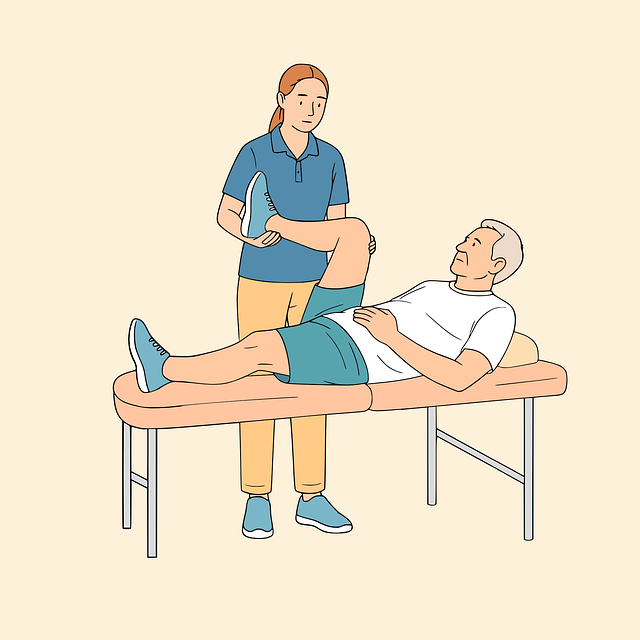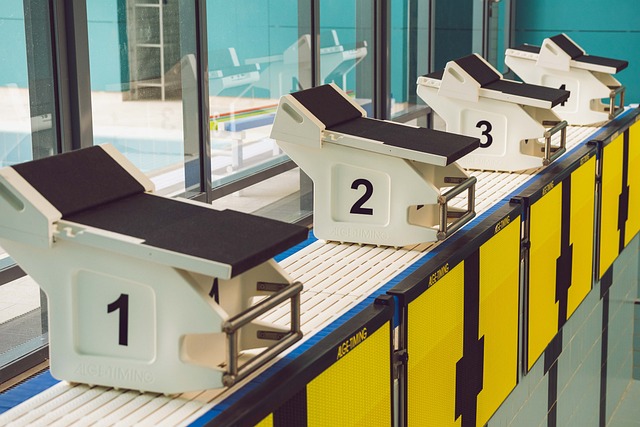Adopting a healthier lifestyle requires a holistic approach encompassing balanced diet advice (e.g., diverse whole foods), regular exercise routines (150 min moderate or 75 min vigorous activity weekly), staying hydrated (8 glasses daily), effective stress management through mindfulness practices, quality sleep (7-9 hours nightly), healthy meal planning, portion control strategies, and avoiding processed food high in sodium, sugars, and unhealthy fats. These interconnected habits promote long-term physical and mental well-being.
Looking to streamline your meals and embrace a healthier lifestyle? This guide offers practical insights and actionable strategies for achieving balance. From understanding the foundation of balanced diet advice and regular exercise routines to mastering lifestyle habits like staying hydrated, stress management, and quality sleep, we’ve got you covered. Explore strategic meal planning, portion control tips, and learn how to avoid processed foods for a truly transformative experience. Embrace these practices for lasting wellness.
- Understanding the Foundation: Balanced Diet Advice and Regular Exercise Routines
- – The role of balanced nutrition in a healthy lifestyle
- – Incorporating regular exercise into your weekly routine
- Lifestyle Habits for Wellness: Staying Hydrated Tips, Stress Management, and Quality Sleep
Understanding the Foundation: Balanced Diet Advice and Regular Exercise Routines

Adopting a healthier lifestyle involves several interconnected components. At its core, balanced diet advice is pivotal. This means incorporating a variety of whole foods like fruits, vegetables, lean proteins, and whole grains. Aim for a rainbow of colors on your plate to ensure you get a diverse range of nutrients. Regular exercise routines are equally essential; they not only help with weight management but also contribute to stronger muscles, improved cardiovascular health, and better mental well-being.
Beyond diet and exercise, other practices play a crucial role. Staying hydrated tips like drinking plenty of water throughout the day support digestion, nutrient absorption, and overall function. Effective stress management techniques such as mindfulness practices or meditation can help regulate hormones that influence hunger and satiety. Similarly, prioritizing quality sleep tips, aiming for 7-9 hours nightly, is key to maintaining a healthy metabolism and hormonal balance. Incorporating these habits alongside healthy meal planning, portion control strategies, and minimizing avoiding processed food will lay the foundation for sustainable health improvements.
– The role of balanced nutrition in a healthy lifestyle

A balanced and nutritious diet is a cornerstone of any healthy lifestyle. It involves incorporating a variety of foods from all food groups – fruits, vegetables, whole grains, lean proteins, and healthy fats – to ensure your body receives all necessary vitamins, minerals, and macronutrients. Tips for a healthier lifestyle include regular exercise routines alongside effective stress management and mindfulness practices. Staying hydrated is another vital component; aim for at least 8 glasses of water daily. Quality sleep (7-9 hours per night) is also essential for overall well-being and supports many of these factors.
Healthy meal planning and portion control strategies are key to achieving balanced nutrition. Pre-preparing meals allows you to maintain a diet rich in whole foods while avoiding processed food, which is often high in sodium, added sugars, and unhealthy fats. By being mindful of your eating habits and making informed choices, you can create sustainable habits that promote long-term health and well-being.
– Incorporating regular exercise into your weekly routine

Incorporating regular exercise into your weekly routine is a key component of achieving a balanced diet and overall health. Aim for at least 150 minutes of moderate-intensity or 75 minutes of vigorous-intensity aerobic activity per week, along with muscle-strengthening activities on two or more days. This could be as simple as incorporating brisk walks, cycling, swimming, or even high-intensity interval training (HIIT) sessions into your schedule. Not only does regular exercise help in burning calories and maintaining a healthy weight, but it also boosts your energy levels, strengthens bones and muscles, and improves cardiovascular health.
To support these efforts, focus on staying hydrated by drinking plenty of water throughout the day, practice effective stress management through mindfulness practices like meditation or yoga, and prioritize quality sleep. Remember that healthy meal planning, portion control strategies, and avoiding processed food are also vital components of a tips for a healthier lifestyle. Start by incorporating more fruits, vegetables, whole grains, lean proteins, and healthy fats into your diet, while gradually reducing the intake of sugary snacks, fried foods, and highly processed meals. These changes will not only contribute to better physical health but can also positively impact mental well-being.
Lifestyle Habits for Wellness: Staying Hydrated Tips, Stress Management, and Quality Sleep

Maintaining a healthy lifestyle is an holistic approach that goes beyond diet and exercise. Staying hydrated is a fundamental tip for a healthier lifestyle; aim to drink plenty of water throughout the day to support your body’s functions, enhance digestion, and boost energy levels. Incorporating regular exercise routines into your weekly schedule is another key component, offering physical and mental health benefits.
Effective stress management and quality sleep are often overlooked but equally crucial aspects. Mindfulness practices like meditation or deep breathing can help reduce stress levels. Prioritizing 7-9 hours of uninterrupted sleep each night allows your body to rest and recharge, improving concentration, mood, and overall well-being. Healthy meal planning with portion control strategies ensures you eat nutritiously without overeating. Moreover, avoiding processed food is a balanced diet advice that promotes whole foods, leading to better health outcomes.
Adopting a healthier lifestyle is achievable through simple yet impactful changes. By integrating balanced diet advice and regular exercise routines, you lay the foundation for wellness. Incorporate staying hydrated tips, effective stress management techniques like mindfulness practices, and aim for quality sleep each night. Healthy meal planning with portion control strategies can prevent the temptation to reach for processed foods. These holistic approaches will not only enhance your energy levels but also contribute to a happier, more balanced life.
